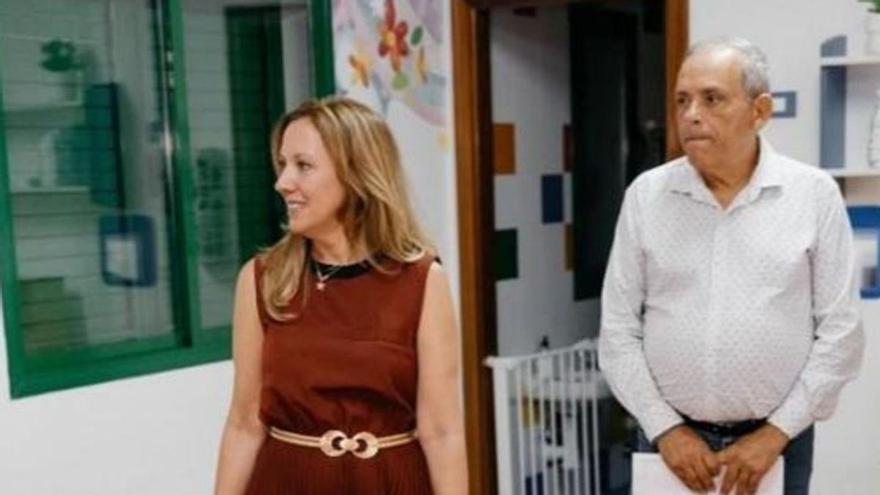
Supporting families and individuals, especially the youth, is one of Rosa Dávila’s major commitments as the President of the Cabildo de Tenerife, as the cornerstone of her government policies. This confirms the continuation of the childcare voucher programme for children aged 0 to 3, with the possibility of receiving €800 per child, in a new edition starting from the next term. “Our aim is to reach over 6,000 families during this term, expanding the reach and impact of the initiative”. Furthermore, in the same vein, the increase in scholarships is to benefit 24,000 students by 2027.
Dávila acknowledges that “one of the main challenges for families with young children is the investment in their care and education”. Hence, she points out, “work-life balance in the early stages of childhood remains a difficult task that mainly affects women. They request 90% of leaves of absence and work permits for child care”.
In response to this need, “in just eight months,” she highlights, “the Cabildo has launched the childcare voucher programme as a complementary support to the public system of nursery schools, which benefited 1,500 families in its inaugural edition. The initiative allowed parents to have young children and pursue a career simultaneously. The goal for 2025, as stated by the island’s president, “is to implement a comprehensive strategy aimed at supporting all families in Tenerife regardless of their type, age, or whether they have children or not. She concludes: “In less than a year, we have begun to build it so that they feel the support of their Cabildo throughout all stages of life.”
[–>
In October last year, the government group launched the initiative to subsidize up to €800 in vouchers for nursery care for children in Tenerife. These aids cover a broader spectrum than those implemented by the Government of the Canary Islands, as they establish the annual income threshold to be eligible for them at €20,000 per person in the family unit. That is, if there are two (parent and child), it would be €40,000. The regional government sets the limit at €24,000 in total; that is, €12,000 per member. The island’s president, Rosa Dávila, considers this benchmark “very important for reaching the middle classes and assisting them on the path to reconciliation.”
The other pillar of this strategic focus for families and individuals revolves around education and employment, for which the Cabildo doubles its budget from €27 to €40 million (48%) in this fiscal year. Additionally, Dávila highlights how “the launch of Spain’s first International Dual Baccalaureate or a scholarship policy that has benefitted over 6,000 young people. Dávila expresses the commitment to reach 24,000 by the end of the current term (2023-2027). Dávila proudly states that the island’s education support for young people “is an undisputed reference in the Archipelago.”
[–>
She emphasises that “we are witnessing the best scholarship policy for students in Canarias, as over 6,000 young people are benefitting from our aid programmes for Secondary education, university studies, Erasmus programmes, and arts education”. The aim is to quadruple the number of beneficiaries in the next three years. She also mentions that almost 400 students enhance their language skills thanks to immersion scholarships abroad.
The President of the Cabildo highlights the recent graduation of over 50 students from Tenerife in the first international dual baccalaureate programme in the USA and Canada. “This will open doors for them in foreign universities, something unimaginable before for a future with more possibilities,” she comments.
Rosa Dávila also highlights the Barrios por el Empleo programme which has enabled “with its successful methodology” the integration of 1,400 vulnerable individuals into the labour market. She points out that “it combines training, knowledge transfer, and tailored insertion paths for every territory and individual.” The leader of Coalición Canaria emphasises that “lifelong training and employment policies, including retraining and professional growth, are equally vital for the advancement of the island.” She concludes: “They prepare us to compete in a global economy.”
Subscribe to continue reading















